The proofs for this book arrived at the same time as the global Covid-19 crisis erupted. London had fallen deathly silent except for the wail of sirens. Our household, like many others, was in quarantine after my daughter had fallen sick. In ways beyond my wildest imaginings, the themes of this book had been thrust to the forefront of everyones minds.
Suddenly and dramatically, in the shadow of this global pandemic, we have all become acutely aware of our physical vulnerability, our dependence on others for care, our appreciation of those whose job it is to care, and our own role in caring. Over the last five years of research, I had been investigating a quiet crisis buried in individual lives (p. 5), but in March 2020 we faced the opposite: a crisis of care which has brought our daily lives and the world economy to a juddering, disorientating halt. Covid-19 has starkly exposed the chronic underinvestment and undervaluing of care; in the relatively early days of this crisis, the outlook is that the UKs precarious and overstretched health and social care systems will buckle, and as a result, thousands of lives will be lost. As the pandemic progresses and hopefully passes, Covid-19 will unleash a huge questioning of the politics and governing systems which failed to foresee this disaster. That could lead to anger, but equally, could trigger a massive cultural shift in which we come to recognize the foundations of care on which all human wellbeing rests. How we organize and fund health and social care could be transformed. We have been brutally reminded that the marginalization of people the homeless, asylum seekers, prisoners in crowded jails will contribute to the severity of the pandemic. For the first time ever in human history, no one is immune, every human being is in this together. The tragedy is that it has taken a disaster to understand our commonality.
Government announcements during the pandemic have repeatedly used the word essential when referring to our caring services. As we experience multiple restrictions on our daily life, we are learning fast the meaning of that word. Lockdown is an entirely novel experience for many in rich countries whose lives are full of complexity, freedom, opportunity and luxury. Suddenly we realize that what is essential is care, and our greatest nightmares are its absence. Will there be nurses and doctors? Will there be beds and equipment? If I am scared who will hold my hand? For those at home the questions are no less urgent. Who is on hand to bring us food? Who can fetch medications? Networks of care are springing up around us as I write; my phone reverberates with messages from my street WhatsApp group: offers to help with shopping and to share food and medicine. Meanwhile, Covid-19 has revealed a humbling truth: that our measures of status and value are flimsy, and that it is the low-paid labour of cleaners, supermarket assistants, and social care workers that is essential. They will be the ones keeping us fed and safe, thus saving lives.
Through much of this book runs an argument about the invisibility of care, and its historic under-valuing. Covid-19 has upended this: care has suddenly taken centre stage. I hope that my investigation can contribute to the soul searching that will follow this crisis; the cry of why did no one see this coming?, as the Queen asked after the 2008 financial crisis. Over the last decade, we have stripped care systems to the bone not just health and social care but in neighbourhoods so that people have lost the habit of asking or offering help. What has made those threadbare care systems so dangerous is that at the same time, medical advances have extended lives so that a greater proportion of the population have fragile health. Covid-19 ripped into the gap I describe in chapter one between the growing need for care and the inadequate systems available to provide it.
A wide-ranging global debate will follow this pandemic for years to come, and this book will play its part by defining what we overlooked. It throws light on many of the attributes, activities and people we will need to value afresh. I can see a new politics of care emerging which recognizes our interdependence as families, friends, communities, towns, cities, nations and as a human species. Terrifying though these days are, we are witnessing a dramatic global effort to save lives. That is inspiring. Everywhere people are focused on this one task, whether they are overworked hospital doctors, engineers building ventilators, scientists researching vaccines or the billions who are staying at home. We are being reminded of what matters: both life and what sustains it, care.
Madeleine Bunting
March 2020
What do we live for, if it is not to make life less difficult for each other?
GEORGE ELIOT , Middlemarch, 1871
Each of us has been shaped by the care of others. From the first touch of the midwifes worn hands as she pulled you into the world, your life has been sustained by a long catalogue of people who have nurtured and supported your development and well-being up to this point. Ahead lie more experiences of being cared for, possibly from those you love and certainly from many strangers, whom you may completely depend on for your most basic needs for comfort, food and cleanliness. No one can afford not to be interested in care.
We need a better understanding of this small word, of the motivation to provide care, and of the skills and knowledge required. Some of this labour takes place within the family: parents care for their children, siblings for each other, and, to a varying extent, children for their parents. Some care is threaded into friendships, romantic love and between neighbours. For millions of people, care has become a job, which requires quickly establishing trust and empathy over the course of busy shifts in a care home, doctors surgery or on a hospital ward.
Care is the critical element of some professions, and at the same time is referred to as a business, even an industry. A few pockets of this work are highly prestigious brain surgery, for example while some hold huge significance in our lives, such as the care woven into intimacy. But much is concerned with the daily maintenance of human welfare, which all too easily slips from view and is taken for granted.
Yet chances are that most people find themselves providing care during their life, and for women, in particular, it can become an all-consuming task for months or years. Care relationships involve knotty issues of dependence, vulnerability, intimacy, risk, resentment, and fulfilment. Some people come to this life lesson young around 180,000 children under eighteen in the UK are carers; for many others, their induction is parenting, but it could be the sickness of a partner or friend, or the ageing of ones own parents care that can now last decades. Every year, 2.1 million adults in the UK take on the care of an elderly or disabled relative (and approximately the same number find that role comes to an end). The care of the elderly and long-term sick enlists one in eight of the UK adult population (6.5 million), and their numbers are expected to grow by 40 per cent in the next twenty years.
The vast work of care, both unpaid and paid, still predominantly falls to women. All my life I was born in 1964 women have been challenging the stereotypes which have defined their lives. They have claimed their right to work outside the home, to pursue careers and to win financial independence, yet care is still seen as womens work. They are still responsible for a larger share of parenting and housework, and a disproportionate number find themselves also caring for parents and for their partners. As lives lengthen, one in four women in their fifties and sixties will take on a care role and their numbers are rising fast. By the age of fifty-nine, women will have a fifty-fifty chance of being, or having been, a carer for a sick or elderly person. At the same time, many are still raising their teenage children and almost half of those over fifty-five are providing regular care for grandchildren. This midway point in life is laden with acute awareness of the growing vulnerabilities of elderly parents, while dealing with the needs of children and young adults. Middle age for women can entail the most intense labour of care of their lives. Sandwich carer is a phrase that inadequately conveys the painful pull to provide care to different generations, perhaps seventy-odd years apart, with a motorway journey of several hours between as I have discovered from experience while writing this book. After providing all this care, womens longer life expectancy often means they find themselves alone without the care of a partner in the final years of their lives.

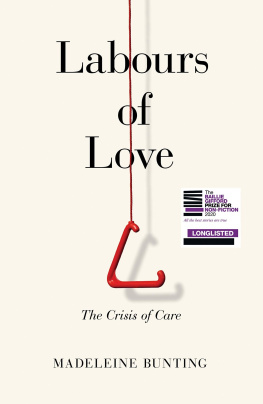
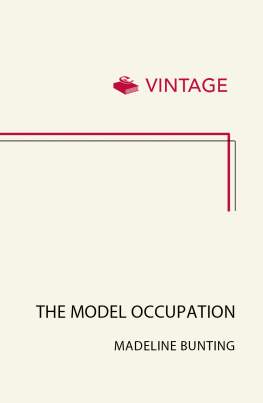


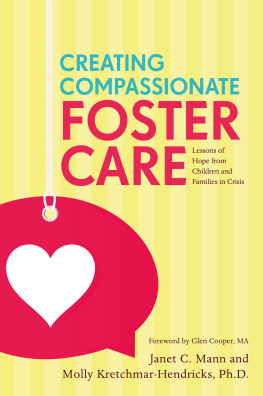
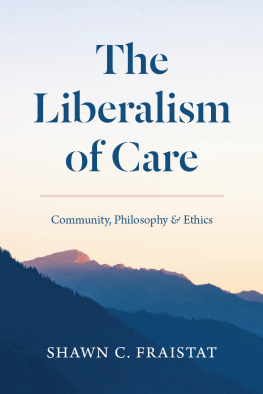
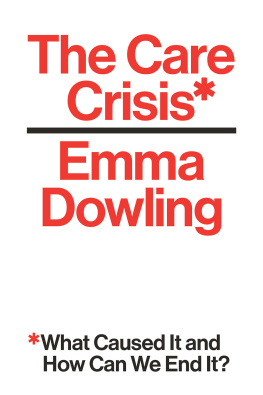
![Madeleine Bunting [Madeleine Bunting ] - Willing Slaves](/uploads/posts/book/142225/thumbs/madeleine-bunting-madeleine-bunting-willing.jpg)
